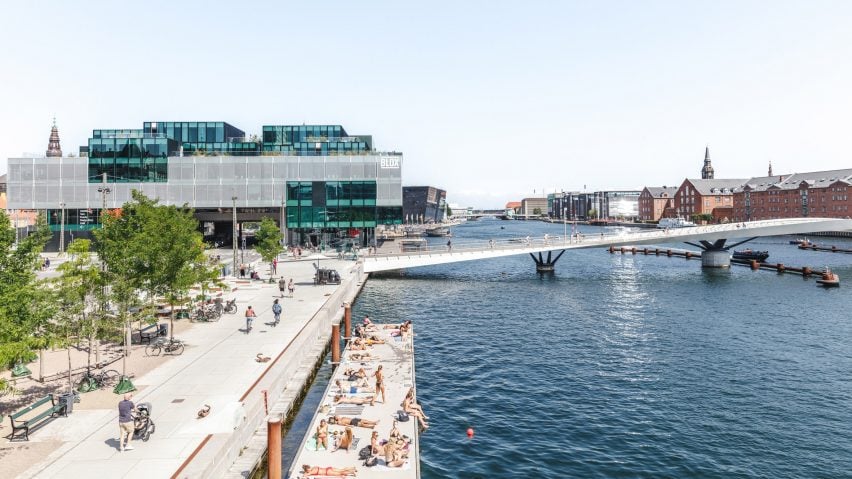Promotion: with Copenhagen due to host the UIA World Congress of Architects, the city aims to set an example for how architecture can help to reduce the impact of climate change.
Voted the world's most sustainable city by TimeOut in 2021, the Danish capital features buildings and public spaces designed to be both eco-conscious and climate-resilient.
These include the BIG-designed CopenHill, said to be the "cleanest waste-to-energy power plant in the world", and the 3XN -designed UN City, which won the European Commission's GreenBuilding Award in 2012.
Other examples include the flood-resilient Klimakvarter (climate district) in Østerbro and Dortheavej Residence, an affordable housing development built in timber.
The 28th UIA World Congress of Architects, hosted by the International Association of Architects, takes place in Copenhagen from 2 to 6 July 2023.
The ambition is to set out a plan for how architecture can help to target the UN's 17 Sustainable Development Goals by 2030.
As the host city of the congress, Copenhagen has also been officially designated as World Capital of Architecture by UNESCO-UIA – a title it holds until 2026.
Copenhagen believes its own urban planning strategy can set the template for how to achieve this goal.
This includes strict regulations on the sustainability of new architecture, energy-efficiency improvements for the city's existing buildings, and a citizen-centric approach to urban development.
The city has invested in one billion DKK (£117 million) in cycling infrastructure since 2005, with the result that 45 per cent of citizens bike to work or school every day.
As well as improving cycle lanes, it has backed cycle-focused projects including the Lille Langebro bridge and the Karen Blixens Plads, which provides sheltered parking for over 2,000 bikes.
Redevelopment of the city's harbour has created economic opportunities and improved quality of life for locals – the water is now clean enough to swim in.
Cold water from the harbour is also used to support a district cooling system, saving 70 per cent of the energy that would be required for traditional air conditioning.
Energy use is a concern for Copenhagen's hotels – close to 70 per cent of the city's hotel rooms hold a form of 3rd party eco-certificate.
Other exemplary new buildings include the Forfatterhuset Kindergarten, featuring nature-filled gardens, and the community-focused Ressourcerækkerne apartment building.
The city attributes its sustainably minded approach to the work of pioneering architects such as Jan Gehl, who has promoted human-centric architecture in the city since the 1970s.
Today, locally based studios including Henning Larsen and COBE are among those championing sustainable practices including timber construction, life-cycle analysis and circular economic thinking.
Henning Larsen recently unveiled plans for Marmormolen, "one of the largest contemporary wood structures in Denmark", while COBE recently completed the city's first ultra-fast charging station for electric cars.
For more information about sustainability and architecture in Copenhagen, visit the VisitCopenhagen website.
To learn more about UIA World Congress of Architects, visit its website.
All images are by Rasmus Hjortshøj of photography and research studio Coast.
Partnership content
This video was created by Dezeen for VisitCopenhagen as part of a partnership. Find out more about Dezeen partnership content here.

